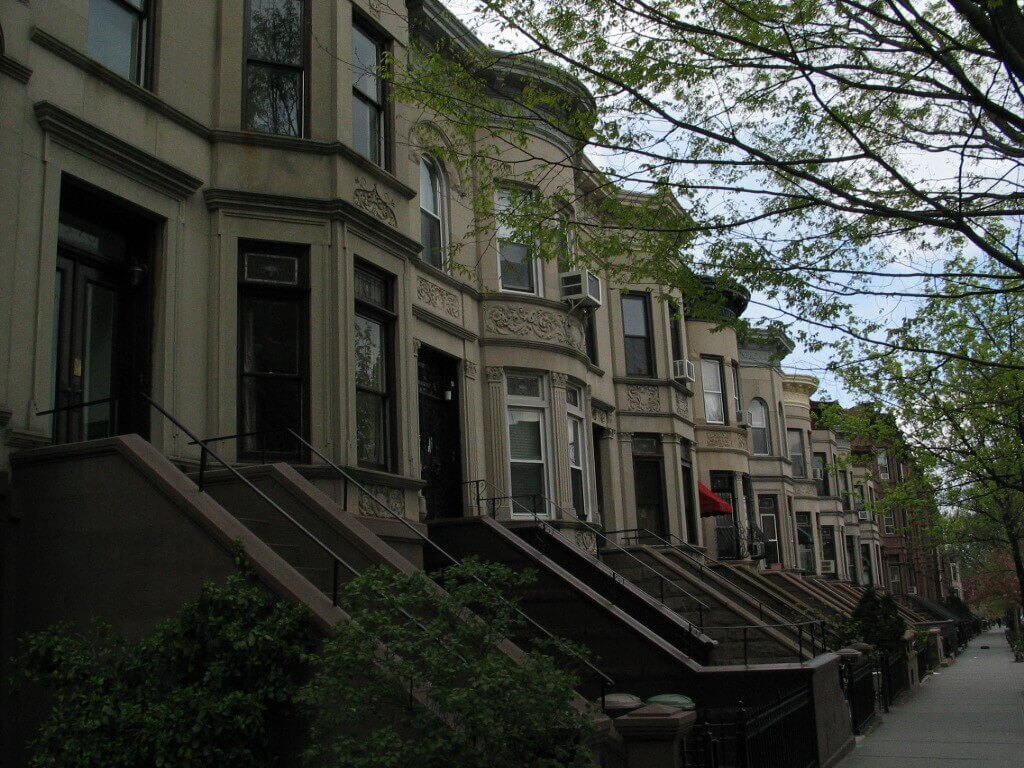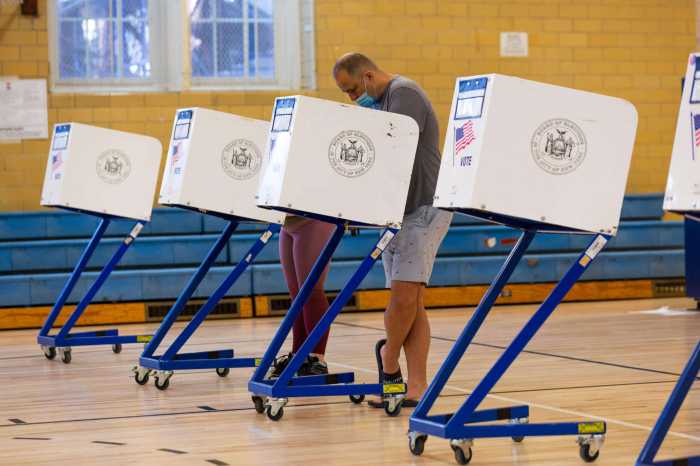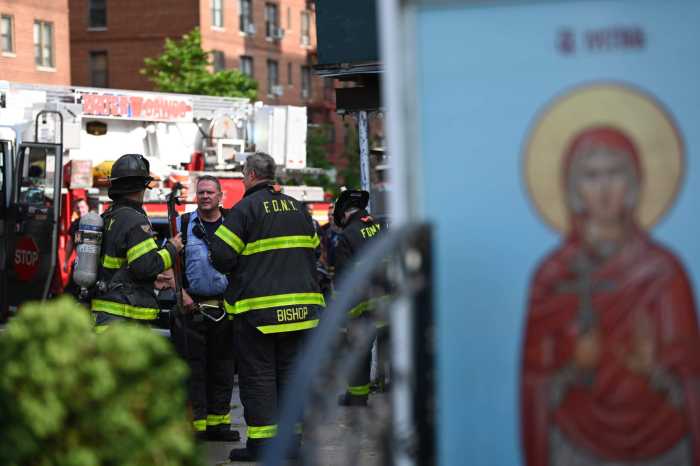Brooklyn homeowners will get to keep a cool $150 in their pocket under the terms of a property tax rebate included in the new city budget for the upcoming fiscal year.
The $101 billion municipal budget deal — which Mayor Eric Adams and City Council lawmakers announced at a press conference on Friday, and which the Council is expected to approve Monday evening — sets aside $90 million to provide a property tax rebate for about 600,000 eligible New Yorkers, according to the mayor’s office.
The rebate’s primary sponsor, southern Brooklyn Councilmember and Finance Chair Justin Brannan, says that it’s the first such rebate in 14 years, and that when combined with another rebate included in the state budget, some beneficiaries could end up seeing over $800 in relief this year.
“Everyone knows the property tax system is broken. It’s one of very few things we can all agree on these days,” Brannan said in a statement to Brooklyn Paper. “Brownstone millionaires are paying a lower effective tax rate than middle-class homeowners in Dyker Heights.”
“We know what needs to be done to fix it. We’ve got the prescription but we can’t wait forever,” he went on. “In the meantime, I’ll be damned if I’m gonna let my constituents continue paying through the nose, serving as an ATM machine for others who have been paying too little for too long.”
Qualifying homeowners include those with incomes under $250,000 per year and who already qualified for the STAR tax exemption included in the state budget. The rebate will be implemented immediately, with “advanced credit” set to be sent to qualifying beneficiaries this fall.
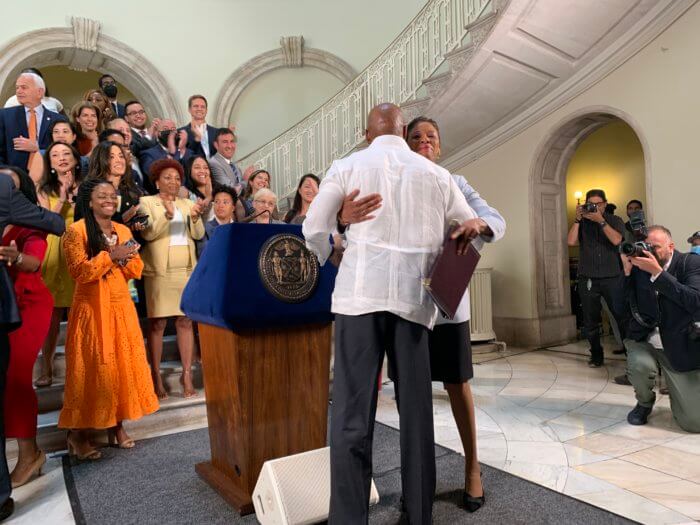
The city’s property tax system has long been convoluted and inequitable, as assessment methods have failed to keep apace with the rapidly changing nature of the Big Apple’s real estate market. Beneficiaries of the system have included the owners of luxe condominiums — which are routinely under-assessed due to the city’s method of deriving value by estimating the rental income from nearby “comparable” buildings — and historic Brooklyn brownstones, where caps on assessment growth limit the amount of taxes that can be collected, despite those properties’ soaring market values.
The losers in the system have typically been those living in newer, smaller properties in the outer boroughs, where assessments have outpaced a far lower rate of market growth, and where such properties are often not eligible for growth caps anyway.
The extreme disparity in tax assessment, market value, and owner income has often led to massive tax arrears in communities considered “asset-rich and cash poor,” which often corresponds to Black and brown neighborhoods; until earlier this year, the city would sell distressed property tax debt to a privately-run trust that farmed out collection to private debt servicers, who would often add steep interest and fees.
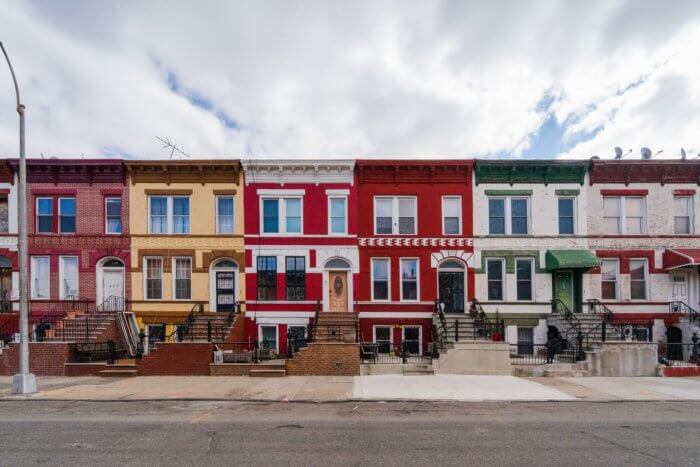
In his administration’s waning days last year, former Mayor Bill de Blasio — who is now running for Congress — unveiled long-awaited proposals to reform the broken property tax system, which included doing away with growth caps, retooling the tax class system, and putting the kibosh on assessments based on comparable rental properties. Mayor Adams and the City Council have not moved to enact the proposed reforms.
Low-income renters can also expect to see some relief in this year’s budget. The document includes $237 million to increase the value of the city’s FHEPS rent voucher for homeless families, aligning it with the value of federal Section 8 vouchers. That would allow homeless families a lot more wiggle room to rent an apartment.
But a broader rent relief program like the property tax rebate was not included. Rents in market-rate apartments have risen astronomically across the city this year, with the median rental in the Big Apple now going for a whopping $4,000 according to a May report from real estate firm Douglas Elliman.
That same report found Brooklyn rents at the highest level in recorded history, with average rents in Kings County going for $3,744. The 2.4 million New Yorkers living in rent-stabilized dwellings may also see rent hikes of up to 6% this year.


